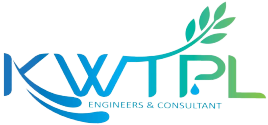Organic Waste Converter

An Organic Waste Converter (OWC) is a specialized machine or system that efficiently processes organic waste materials and converts them into valuable resources such as compost, biogas, or biofertilizers. It is an eco-friendly solution for managing organic waste, which includes biodegradable materials like food scraps, agricultural residues, yard trimmings, and sewage sludge.
The main purpose of an Organic Waste Converter is to facilitate the decomposition of organic waste through a controlled and accelerated process, usually known as composting or anaerobic digestion, depending on the type of OWC used. These processes involve the activity of microorganisms, such as bacteria and fungi, that break down organic matter into simpler compounds.
There are different types of Organic Waste Converter:
Aerobic Composting Systems
These OWCs utilize oxygen to decompose organic waste through aerobic microbial activity. The waste is periodically mixed or turned to maintain proper aeration and moisture levels, facilitating the breakdown of organic matter into compost. These systems are commonly used for household or small-scale organic waste management.
Anaerobic Digesters
Anaerobic OWCs break down organic waste without oxygen, leading to the production of biogas, primarily composed of methane and carbon dioxide. Biogas can be using as a renewable energy source for electricity generation or heating. This type of converter is typically using in larger-scale applications, like industrial or municipal organic waste treatment.
Vermicomposting Systems
Vermicomposting involves the use of earthworms to accelerate the decomposition of organic waste. Earthworms consume organic matter, and their digestive processes convert the waste into nutrient-rich vermicompost or worm castings, which is an excellent soil amendment.
Organic Waste Converter offers several benefits:
- OWCs help divert organic waste from landfills, reducing the volume of waste and its associated environmental impact.
- The conversion of organic waste into compost, biogas, or vermicompost allows the recycling of nutrients and organic matter, promoting sustainable resource management.
- By composting or digesting organic waste, OWCs help minimize methane emissions, as methane is a potent greenhouse gas that contributes to climate change.
- The compost or vermicompost produced can be used to enrich soils, improve fertility, and enhance plant growth.
Applications Of Organic Waste Converter
Organic Waste Management
The primary application of organic waste converter is to efficiently manage and process organic waste. They can handle a wide range of organic waste materials, including food scraps, agricultural residues, yard trimmings, and sewage sludge. By diverting organic waste from landfills, these converters help reduce environmental pollution and greenhouse gas emissions.
Compost Production
Organic waste converters facilitate the composting process, converting organic waste into nutrient-rich compost. Compost is a valuable soil amendment that enhances soil fertility, improves water retention, and promotes plant growth. The produced compost can be using in agriculture, landscaping, gardening, and horticulture.
Biofertilizer Production
Some organic waste converters, especially vermicomposting systems, produce high-quality biofertilizers known as vermicompost or worm castings. These biofertilizers contain beneficial microorganisms, plant growth-promoting substances, and essential nutrients, contributing to sustainable agriculture and reducing the reliance on synthetic fertilizers.
Biogas Generation
Anaerobic organic waste converters produce biogas through the breakdown of organic matter in the absence of oxygen. Biogas is primarily composing of methane and carbon dioxide and can be using as a renewable energy source for electricity generation or heating. This application is especially useful for larger-scale organic waste treatment in industrial or municipal settings.
Waste-to-Energy Conversion
Biogas produced from organic waste converters can be utilized in combined heat and power (CHP) systems, where both electricity and heat are generated simultaneously. This waste-to-energy approach helps utilize organic waste resources efficiently and contributes to sustainable energy production.
Land Remediation
Compost produced by organic waste converters can be using for land remediation and soil restoration in degraded or contaminated areas. It helps improve soil structure and fertility, enabling vegetation growth and promoting ecosystem recovery.
Community and Household Waste Management
Small-scale organic waste converters are suitable for community composting initiatives and household waste management. These converters provide a practical and sustainable solution for handling organic waste at the local level, reducing the burden on municipal waste management systems.
Agricultural Residue Management
Organic waste converters can handle agricultural residues and crop residues left after harvesting. Proper disposal or conversion of these residues helps prevent open burning, which leads to air pollution and greenhouse gas emissions.

